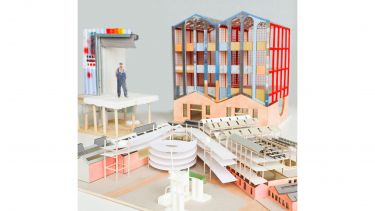Industrial Ecologies
Studio tutor: James Woodcock
Can an industrial hinterland become a regenerative neighbourhood with no demolition?
The profusion of steelworks in Attercliffe during the late 18th and 19th Centuries transformed Sheffield from a small provincial town into one of Europe’s first major industrial cities, and Attercliffe itself into a thriving suburb.
Burning the abundant local coal, this cluster of forges and factories also became one of the first areas in the world to contribute significant man-made carbon emissions to our atmosphere; an epicentre of our present global climate emergency.
Following controversial postwar housing clearances, a partial decline in manufacturing and years of underinvestment, today’s Attercliffe is sparsely populated and under-served by amenities. Of the 144 pubs in the area’s heyday, just one remains.
Yet Attercliffe’s time is now: The Council’s plans for the future of the Sheffield foreground the area as a site of much needed housing growth, and as a gateway to the city from the east. The canal, river and train lines which once served polluting industry are ripe for reuse as the backbone of healthy communities.
Thinking as ecologists, we will seek first to get a deep and nuanced understanding of the area as we find it - looking, listening and exploring at a range of scales, valuing local knowledge, built fabric and nonhuman life.
Through bio-based retrofit and nature-led landscape design we will then work to repurpose what we have found, creating exciting places for community to grow in our post-carbon future.

International scholarships
We offer a generous package of financial support for international students, including undergraduate and postgraduate taught scholarships towards the annual tuition fee. Applications are open for existing offer holders.


















